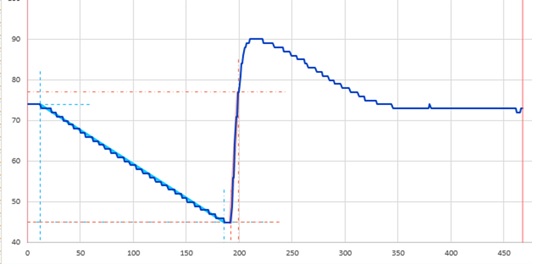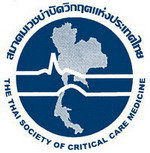Prognostic value of near-infrared spectroscopy in mortality and organ dysfunction in patients recovery from septic shock: The research protocol
DOI:
https://doi.org/10.54205/ccc.v30.254767Keywords:
Recovered from septic shock, Near-infrared spectroscopyAbstract
Background: Sepsis or septic shock results in the alteration of blood flow at the microcirculatory level, affecting tissue oxygenation and organ function and associated with death. This study aimed to use near-infrared spectroscopy (NIRS) in conjunction with vascular occlusion test (VOT) to assess the association of microcirculatory dysfunction after recovered from septic shock and in-hospital mortality.
Methods: We conducted a prospective observational study in patients who recovered from septic shock. We performed NIRS with VOT within 24 hours of hospitalization in medical and anesthetic ICU (T0), then at the time of recovery from septic shock (D0), at day 3 (D3), day 5 (D5), and day 7 (D7) after recovery from septic shock. We recorded the de-oxygenation (DeO2) slope, the re-oxygenation (ReO2) slope, and the area under the hyperemic response curve (the reperfusion area). We focused on parameters of microcirculation dysfunction, in-hospital mortality, and in-hospital complications.
Hypothesis: We hypothesize that NIRS with vascular occlusion test parameters are associated with in-hospital mortality and hospital complications
Ethic: The study protocol has been approved by the Institution Review Board of Ramathibodi Hospital, Mahidol University, Thailand (No. MURA2020/147).
Trial registration: TCTR20220413001
Downloads
References
Angus DC, van der Poll T. Severe sepsis and septic shock. The New England journal of medicine. 2013;369(9):840-51.
Vincent JL, Jones G, David S, Olariu E, Cadwell KK. Frequency and mortality of septic shock in Europe and North America: a systematic review and meta-analysis. Critical care (London, England). 2019;23(1):196.
Ince C. The microcirculation is the motor of sepsis. Critical care (London, England). 2005;9 Suppl 4(Suppl 4):S13-9.
Miranda M, Balarini M, Caixeta D, Bouskela E. Microcirculatory dysfunction in sepsis: pathophysiology, clinical monitoring, and potential therapies. American journal of physiology Heart and circulatory physiology. 2016;311(1):H24-35.
Charlton M, Sims M, Coats T, Thompson JP. The microcirculation and its measurement in sepsis. Journal of the Intensive Care Society. 2017;18(3):221-7.
Permpikul C, Cheranakhorn C. The temporal changes of tissue oxygen saturation (StO2) and central venous oxygen saturation (ScvO2) during sepsis/septic shock resuscitation. Journal of the Medical Association of Thailand = Chotmaihet thangphaet. 2014;97 Suppl 3:S168-75.
Gruartmoner G, Mesquida J, Ince C. Microcirculatory monitoring in septic patients: Where do we stand? Medicina intensiva. 2017;41(1):44-52.
Lima A, Bakker J. Near-infrared spectroscopy for monitoring peripheral tissue perfusion in critically ill patients. Revista Brasileira de terapia intensiva. 2011;23(3):341-51.
Green MS, Sehgal S, Tariq R. Near-Infrared Spectroscopy: The New Must Have Tool in the Intensive Care Unit? Seminars in cardiothoracic and vascular anesthesia. 2016;20(3):213-24.
Singer M, Deutschman CS, Seymour CW, Shankar-Hari M, Annane D, Bauer M, et al. The Third International Consensus Definitions for Sepsis and Septic Shock (Sepsis-3). Jama. 2016;315(8):801-10.
Shapiro NI, Arnold R, Sherwin R, O'Connor J, Najarro G, Singh S, et al. The association of near-infrared spectroscopy-derived tissue oxygenation measurements with sepsis syndromes, organ dysfunction and mortality in emergency department patients with sepsis. Critical care (London, England). 2011;15(5):R223.
Palevsky PM, Liu KD, Brophy PD, Chawla LS, Parikh CR, Thakar CV, et al. KDOQI US commentary on the 2012 KDIGO clinical practice guideline for acute kidney injury. American journal of kidney diseases : the official journal of the National Kidney Foundation. 2013;61(5):649-72.
Sikora A, Zahra F. Nosocomial Infections. StatPearls. Treasure Island (FL): StatPearls Publishing Copyright © 2022, StatPearls Publishing LLC.; 2022.
Hooton TM, Bradley SF, Cardenas DD, Colgan R, Geerlings SE, Rice JC, et al. Diagnosis, prevention, and treatment of catheter-associated urinary tract infection in adults: 2009 International Clinical Practice Guidelines from the Infectious Diseases Society of America. Clinical infectious diseases : an official publication of the Infectious Diseases Society of America. 2010;50(5):625-63.
Papazian L, Klompas M, Luyt CE. Ventilator-associated pneumonia in adults: a narrative review. Intensive care medicine. 2020;46(5):888-906.
Gusmao-Flores D, Salluh JI, Chalhub R, Quarantini LC. The confusion assessment method for the intensive care unit (CAM-ICU) and intensive care delirium screening checklist (ICDSC) for the diagnosis of delirium: a systematic review and meta-analysis of clinical studies. Critical care (London, England). 2012;16(4):R115.
Vincent JL, Jones G, David S, Olariu E, Cadwell KK. Frequency and mortality of septic shock in Europe and North America: a systematic review and meta-analysis. Critical care (London, England). 2019;23(1):196.
Samraj RS, Nicolas L. Near infrared spectroscopy (NIRS) derived tissue oxygenation in critical illness. Clinical and investigative medicine Medecine clinique et experimentale. 2015;38(5):E285-95.
Lipcsey M, Woinarski NC, Bellomo R. Near infrared spectroscopy (NIRS) of the thenar eminence in anesthesia and intensive care. Annals of intensive care. 2012;2(1):11.

Downloads
Published
How to Cite
Issue
Section
License
Copyright (c) 2022 The Thai Society of Critical Care Medicine

This work is licensed under a Creative Commons Attribution-NonCommercial 4.0 International License.




